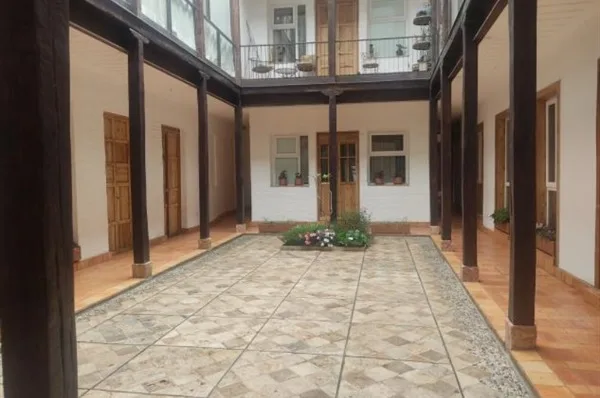Nine Quechua words expats and visitors to the Ecuadorian and Peruvian Andes should learn

Most people visiting Peru or Ecuador for the first time quickly realize that the rich indigenous heritage makes the countries what they are today.
Particularly in the Andes, a prime reason for many visits is to connect with, and learn about indigenous traditions — and a key component of those traditions is the language of the region, Quechua. Learning a few basic things about this language can go a long way for travelers who want to build meaningful connections with people of the Andes. Here are nine words in Quechua that will likely bring a smile to any Andean local who hears you speak them.
Before we start the Quechua lesson, however, we need to make clear that there are many dialects of Quechua across Peru and Ecuador. This is a Quechua lesson for those who find themselves in and near Cusco, Peru and in high-elevation regions of the central Ecuadorian Andes.
Allianchu – Allianmi
Where else to start, but with a typical Quechua greeting.
Allianchu (pronounced: Eye-eee-anch-ooo) is a way of saying, hello, how are you? If you were to learn one Quechua phrase, we recommend that this be the one. As a response to this question, you’re likely to hear allianmi, (pronounced: Eye-eee-on-meee), which means “I am well, thank-you.” And if you hear a local say to you, allianchu, the best thing to say in response is allianmi.
 Munay
Munay
Love, love, love, makes the world go around, doesn’t it? If you listen to people speak much Quechua, you’re likely to pick up on the fact that people speak a lot about love in this language. You’ll find many different variations of this word within the Quechua language, but if just say munay (pronounced: moon-eye), people are going to know what you’re talking about. Say it to somebody whose outfit you love. Say it to somebody who does you a favor. Say it to a weaver whose textile you truly love.
Somaq Mihuna
Where would we be without wonderful food from the Andes? There are a lot of great tasty things to eat, so why not learn how to compliment your Quechua speaking cook? When you say somaq mihuna (pronounced: so-mak meehooona), you’re saying that “this is amazing food.” If somebody hears you say this at their restaurant or food stand, they’re likely to be happy, and very surprised.
Waykay, Panay, Turay, Nanay
Okay, this one get’s more difficult than the others, but it is still a helpful thing to know. If you haven’t yet been in the Andes, maybe you haven’t noticed that community Andean life feels very much like family life. Without surprise, the Quechua language reflects this in deep ways. It is common for friends to refer to themselves as brothers or sisters. You can do the same, if you feel a sense of closeness with somebody you’ve met. If you are a man speaking to another man, you can call him brother by saying waykay (prounounced: Way-kay), but if you are speaking to a woman, be sure to call her panay (pronounced: pan-eye). If you are a woman speaking to another woman, call her ñañay (pronounced: neean-neee-eye), and if you are speaking to a man, refer to him as turay (pronounced: tour-eye).
 Llankay
Llankay
This is the word for work, and if you haven’t noticed while spending time out in the countryside, most people of the Andes work their butts off in the fields to growing their own food, build their own houses, and often to carry heavy loads across long distances on their backs. Give an Andean local recognition for the impressive ways that they work so hard, and say llankay (pronounced: yank-eye).
Jalpaykusinchis
This one is pretty difficult to say, but once you learn how to say it, you’re going to impress most people who hear you. One of the most sacred and important traditions of the Andes is the sharing of the coca leaf. The gesture of sharing this sacred leaf, known as a quintu (pronounced: kin-two), is a way to show gratitude, as well as respect. If you find yourself sitting beside somebody on the bus who you feel an afinity with, go ahead and offer then a few coca leaves, while saying this phrase to them, japlaykusinchis (pronounced: halpay-koos-in-chis), which means “let’s chew some coca together.”
 Sulpayki
Sulpayki
Where would we be without our pleases and thank-yous? Usually we wouldn’t get very far. With that in mind, consider learning this fundamental Quechua word, sulpayki (pronounced: sool-pay-ki), which means thank-you.
Tupananchikama
All good things must come to an end. There always comes a time for parting. At times when you realize that it’s time to say goodbye, tell somebody tupananchikama, (pronounced: two-pan-anchis-kama), which means goodbye.

Kawsaypac
In Quechua, this word, (pronounced: cow-say-pak), means to life. If you feel the need to make a cheers to somebody, speak these words. To live, to health, to honor the sacred land, people, and the beautiful language that they speak.

















